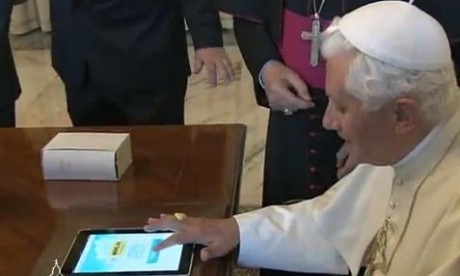Some institutions may not adapt to 21st-century radical transparency. The papacy’s turn to inflammatory rhetoric while hit by a series of damaging leaks suggests that it’s struggling.
Strange things have been happening at the Vatican this year. Beginning in January, documents written by high-level figures in the Catholic Church began finding their way into the Italian press, many of the letters to the pope denouncing instances of corruption and complaining about the direction and management of the Church.
When a book full of leaked documents, Sua Santità (His Holiness), was published in late May, the Vatican took the extraordinary step of arresting the pope’s butler, Paolo Gabriele, a humble but trusted member of the papal household, and announced that officials had found numerous papal documents at Gabriele’s apartment within the Vatican. At the same time, the Vatican Bank, under investigation for money laundering (charges the Vatican denies), fired its president, a respected Catholic banker, listing among the reasons for his dismissal allegations that sounded a lot like leaking: “Failure to provide any formal explanation for the dissemination of documents last known to be in the President’s possession.” Immediately after his firing, the former bank president hired his own bodyguard service and wrote a private memorandum to the pope, which he wished to disseminate “in case something should happen to him.”
Power struggles and scandal are nothing new in the Vatican. Pope Alexander VI, for one, was accused of poisoning his enemies and sleeping with his daughter, the infamous Lucrezia Borgia. But until now the pope had been able to count on the loyalty and discretion of his inner circle and a hermetically sealed culture of silence, discretion, and secrecy that has often been compared with that of the Kremlin at the height of Soviet power. Now the last and most ancient of the world’s absolute monarchies is suddenly in the fishbowl culture of the 21st century, where the most-trivial and the most-important details alike become transparent. Read more
Sources
- The Atlantic
- Image: WSI
